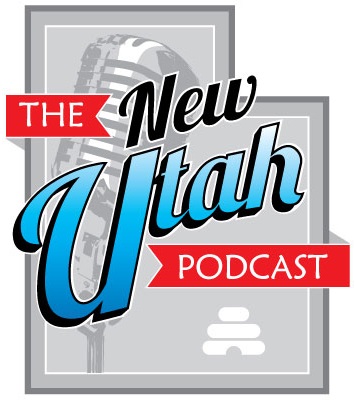Welcome to our new monthly segment of infamous, or famous, Utah Criminals!
We thought we would start with an oldie but a goodie. Your knowledge of Butch Cassidy may come from the Robert Redford/Paul Newman feature, Butch Cassidy and the Sundance Kid from 1969, but hopefully we can add some new tidbits for you.
Born in good old Beaver, Utah in 1866 by the given name of Robert Leroy Parker he was the oldest of 13. His grandparents and parents were Mormon Pioneers from England that moved across the plains to help build communities in Utah. Robert moved with his family to the small town of Circleville, Utah *outside Bryce Canyon* when he was just 13 in 1879.

His career as a thief started young, but he had good intentions. Stealing a pair of overalls while the local store was closed, he left a note saying he would be paying the owner back, however the owner didn’t like that and he got authorities involved. Robert ended up being let off, however it left a sour taste in his mouth going forward. Robert moved to Wyoming and worked as a butcher, which is where he is said to have gotten his name “Butch” from. The last name “Cassidy” may have come from a rustler that mentored him by the name of Mike Cassidy.
On June 24, 1889 Cassidy pulled off his first bank robbery, when he and several companions made a break with more than $20,000 from the San Miguel Valley Bank in Telluride, Colorado. As a horse thief and rustler, he was known as the “Robin Hood of the West.” As an outlaw fighting for settler rights, the horses he was stealing were generally part of cattle barons and Cassidy wanted to make sure that ranchers were getting their land and animals back. Butch Cassidy is said to be a non-violent outlaw and it’s rumored he was that way because of his Mormon upbringing. His co-horts however were not as nice.
Butch Cassidy joined a band of outlaws called the “Wild Bunch.” This group of men included his best friend, William Ellsworth “Elzy” Lay, and the famous Sundance Kid, Harry Alonzo Longabaugh. Also in the group was, Harvey Logan, alias Kid Curry; Ben Kilpatrick, the Tall Texan; and Harry Tracy.

The Wild Bunch in 1901, with Henry Longabaugh (Sundance Kid) sitting far left and Robert LeRoy Parker (Butch Cassidy) sitting far right. (Credit: The Print Collection/Print Collector/Getty Images)
Some of their most famous robberies include the Montpelier Bank in Montpelier, Idaho where they walked away, literally, with $7,165. The only hold up in Utah, at the Pleasant Valley Coal Company in Castle Gate, in the amount of $8,800. This group of outlaws is still known for the longest sequence of successful train and bank robberies. Some of their train robberies include; Overland Flyer train near Wilcox, Wyoming on June 2, 1899 and made off with $60,000. Next was a Rio Grande train near Folsom, New Mexico on July 11, 1899. This was the grandest prize that they made off with in the amount of $70,000. Next up would be the Union Pacific train at Tipton, Wyoming on August 29, 1900. That robbery was a grand total of $55,000. However, this time they were identified by passengers on the train On September 9, 1900, they stole $32,640 from a bank in Winnemucca, Nevada. The last holdup by the Wild Bunch was a $65,000 robbery of the Northern Pacific Train on July 3, 1901 near Wagner, Montana. After that, the Wild Bunch dispersed.
After everyone went their ways, Butch Cassidy and the Sundance Kid headed to England and then to South America where they set up some ranches and continued their robberies. It is after this that the story becomes sketchy. However, because of Butch Cassidy’s large family, his youngest sister; Lula Betenson was still alive up until the 1980’s and wrote a book about him called, “Butch Cassidy, My Brother.” She said that he didn’t die in Boliva. It is said he moved to Washington State under the name William Phillips. To this day, no one knows where his remains are and what happened really happened to Butch Cassidy.
You can still visit his home in Circleville, Utah. You can also take some hikes that the Grand Canyon Trust has mapped out of the hideouts of the Wild Bunch!
Cassidy wrote: ‘The best way to hurt them is through their pocket book. They will Holler louder than if you cut off both legs. I steal their money just to hear them holler. Then I pass it out among those who really need it.’
Check out some of these resources for more information on Butch Cassidy: CirclevilleUtah.Org. History Channel.com. Bear Lake.Org. Utah.com. GrandCanyonTrust.Org. and Ksl.com.
Music By: Folk Hogan; Bootleggers Dance
